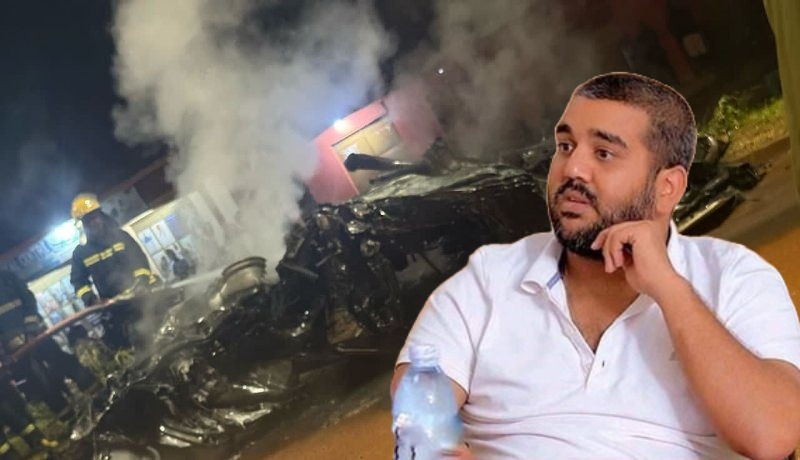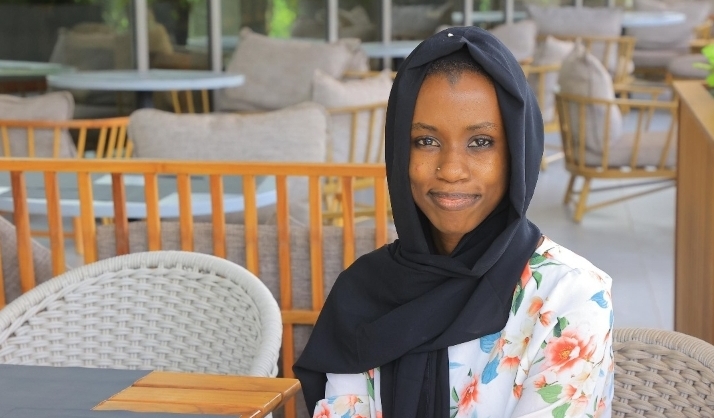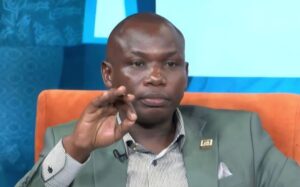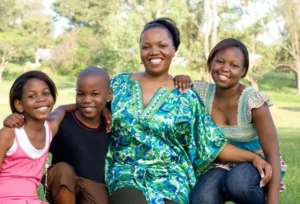News
VIDEO: Horrifying Accident Ends Rajiv Ruparelia Life, Burnt to Ashes

Businessman Rajiv Ruparelia, Managing Director of the Ruparelia Group, has died following a motor accident, sources have confirmed.
Details surrounding the incident remain scant, but initial reports indicate the crash occurred earlier today.
According to the videos on our news desk, Rajiv’s caught fire and burned to ashes.
Authorities have yet to release an official statement, and it is not immediately clear where the accident occurred or if there were other casualties.
Rajiv, son of city tycoon Sudhir Ruparelia, played a central role in expanding the Ruparelia Group’s footprint across real estate, education, hospitality, and agriculture.
He had also made a name for himself in motorsport and philanthropy, often seen as a modern face of one of Uganda’s most prominent business empires.
News
Conversation With Uganda’s Student Tech Pioneer: Kusiima Saruah

In a country where the youth make up the majority of the population, their voices are often overlooked in critical governance processes. But a bold new wave of innovation led by young minds is reshaping how civic participation and leadership are cultivated, starting right at the grassroots.
One such trailblazer is Kusiima Saruah Kyaligonza, a 21-year-old software developer and university student at Uganda Martyrs University, whose work caught our attention. In a recent conversation with Amiri Wabusimba, Kusiima shared her vision, journey, and the powerful potential of digital platforms to transform Uganda’s democratic future.
Inspired by the challenges she observed in university elections, including voter mistrust, low student participation, and systemic apathy, Kusiima developed a digital voting platform tailored for student elections. She aimed to rebuild faith in electoral processes, beginning within schools. “Watching the university’s elections, I saw the frustration from students.
I wanted to create a space where students feel their voices matter and their votes count,” she explained. “If we instill that mindset early, we raise a generation that demands integrity and leads with purpose.” Her platform addresses specific electoral issues such as vote rigging, low turnout, and favoritism common even in student leadership contests by promoting transparency, fairness, and accessibility.
Kusiima’s work is part of a broader movement of youth-led innovation in Uganda. “We often say the youth are the leaders of tomorrow,” she noted, “but many of us are already leading today through art, technology, advocacy, and innovation. What we need is support, not just applause.” Her initiative has been well received by fellow students, who report feeling empowered, heard, and more engaged in school governance. According to Kusiima, the impact goes beyond elections; it sows seeds of responsible leadership.
Asked whether digital voting could work on a national level, Kusiima responded with conviction. “Yes, it can if we commit to building digital literacy, infrastructure, and, most importantly, trust. Leaders must stop fearing technology and start embracing its potential.” If given a chance to address the Electoral Commission or national leaders, Kusiima says she would urge them to invest in youth innovations and adopt transparent systems that simplify civic participation without compromising credibility.
As Uganda continues to grapple with questions around electoral transparency, declining public trust in democratic institutions, and low youth participation, innovations like Kusiima Saruah’s digital voting platform couldn’t have come at a better time, especially as the country prepares for the 2026 general elections. Her initiative offers more than a technological upgrade, it’s a catalyst for cultural change in how Uganda engages its citizens from an early age. By digitizing trust, simplifying participation, and empowering youth to lead, this platform embodies the future of accountable governance.
This is not just a student project; it’s a national opportunity waiting to be embraced. It is time for Uganda’s government, Electoral Commission, civil society, and development partners to see this for what it is: a smart, scalable, homegrown solution that reflects both the challenges and the aspirations of a new generation.
If Uganda truly seeks to uphold the principles of free and fair elections in 2026 and beyond, then supporting innovations like Kusiima’s is not optional; it is essential.
-
Top Stories2 days ago
Just in: PLU leaning to NRM, Withdraws From Party Primaries With 22 days Remaining to Elections.
-
Top Stories5 days ago
Suspected female suicide bomber killed in Kalerwe
-
Top Stories5 days ago
NUP Clears Kyeyune Pafuladiito For Mubende District Chairperson Race.
-
Top Stories5 days ago
NUP Goes For Buwekula South MP Seat Blesses Edward Ssempira.
-
Top Stories2 days ago
Museveni Approves Flyover Along Kampala-Jinja Highway to Protect Mbalala Industrial Park Workers
-
Top Stories4 days ago
Uganda’s Open Currency Policy and the Decline of the Shilling
-
Top Stories4 days ago
Dr. Ssemugenyi petitions Constitutional Court over UPDF Amendment Act
-
Top Stories2 days ago
Police fire teargas and water cannon at protesters in Kenya as thousands take to the streets

















